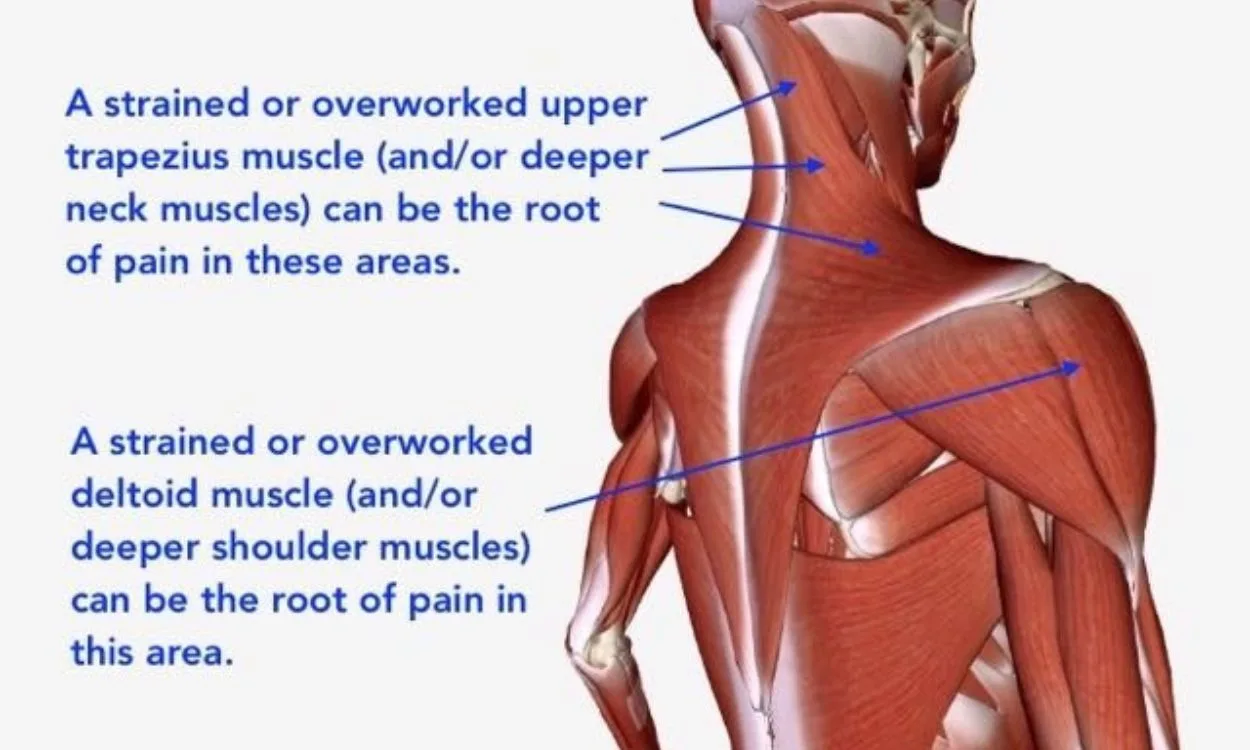How Does Muscle Tension in the Neck Affect the Shoulders?
Have you ever experienced a stiff neck or shoulder pain? If so, you may be familiar with the discomfort and limited range of motion that can occur when the muscles in your neck are tense. But did you know that muscle tension in the neck can also have a ripple effect on the shoulders? In this article, we will explore how muscle tension in the neck can affect the shoulders and provide some tips on how to alleviate tension and promote overall well-being.
The Neck-Shoulder Connection
The neck and shoulders are closely interconnected through a network of muscles, tendons, and nerves. When the muscles in your neck become tense, they can create imbalances and pull on the surrounding structures, including the muscles in your shoulders. This can lead to a variety of issues, such as:
- Shoulder Pain: Muscle tension in the neck can refer pain to the shoulders, causing discomfort and limiting your ability to freely move your arms and shoulders.
- Limited Range of Motion: Tightness in the neck muscles can restrict the movement of your shoulders, making it difficult to perform everyday activities like reaching overhead or rotating your arms.
- Postural Problems: When the muscles in your neck are tense, it can affect your posture. You may find yourself hunching your shoulders forward or rounding your upper back to compensate, further exacerbating the tension and discomfort.
- Headaches: Muscle tension in the neck can contribute to tension headaches, which often radiate from the base of the skull to the temples or forehead.
Causes of Muscle Tension in the Neck
Several factors can contribute to muscle tension in the neck, including:
- Poor Posture: Sitting or standing for extended periods with your head and neck in a forward position can strain the muscles and lead to tension.
- Stress and Anxiety: Emotional stress and anxiety can manifest in physical symptoms, including muscle tension in the neck and shoulders.
- Repetitive Activities: Engaging in repetitive movements or maintaining the same position for a long time, such as working at a computer or driving, can put strain on the neck muscles.
- Injury or Trauma: Whiplash or other injuries to the neck can cause muscle tension and lead to ongoing discomfort.
Tips to Alleviate Muscle Tension
If you’re experiencing muscle tension in your neck that is affecting your shoulders, here are some tips to help alleviate the discomfort and promote relaxation:
- Stretch and Strengthen: Incorporate gentle stretching exercises into your daily routine to target the muscles in your neck and shoulders. Additionally, strengthening exercises can help improve muscle balance and stability.
- Improve Posture: Be mindful of your posture throughout the day, especially when sitting or standing for long periods. Sit up straight, keep your shoulders relaxed, and avoid slouching or hunching forward.
- Take Breaks: If you engage in repetitive activities, take frequent breaks to stretch and move your neck and shoulders. This can help prevent muscle fatigue and tension buildup.
- Manage Stress: Practice stress management techniques, such as deep breathing exercises, meditation, or engaging in activities that help you relax and unwind. Managing stress can help reduce muscle tension in the neck and shoulders.
- Apply Heat or Cold: Applying a heating pad or taking a warm shower can help relax tense muscles. Alternatively, using a cold pack or ice wrapped in a cloth can help reduce inflammation and numb pain.
Introducing Fitpaa: Your Health & Fitness Solution
If you’re looking for a comprehensive solution to not only address muscle tension in the neck and shoulders but also achieve your overall health and fitness goals, Fitpaa is here to help. Fitpaa is an end-to-end AI-driven metabolism monitoring and management technology that aims to support individuals in achieving their health and fitness goals with guaranteed results.
With Fitpaa, you’ll have access to a team of experts, including fitness coaches, nutritionists, and doctors, who will guide you throughout your journey. The Fitpaa Capsule, a personalized health and fitness plan based on your metabolism, lifestyle, and goals, will help optimize your metabolism and provide you with the tools necessary to achieve your desired results.
The Fitpaa mobile app offers features such as a virtual workout trainer, diet tracker, performance tracking, progress tracking, and real-time guidance technology. You’ll receive constant support, regular reviews, and consultations to ensure you stay on track and make progress towards your goals.
Remember, your well-being is Fitpaa’s mission. If you’re ready to experience the joy of getting fit and excelling at life, download the Fitpaa app today and begin your journey towards a healthier, happier you!









